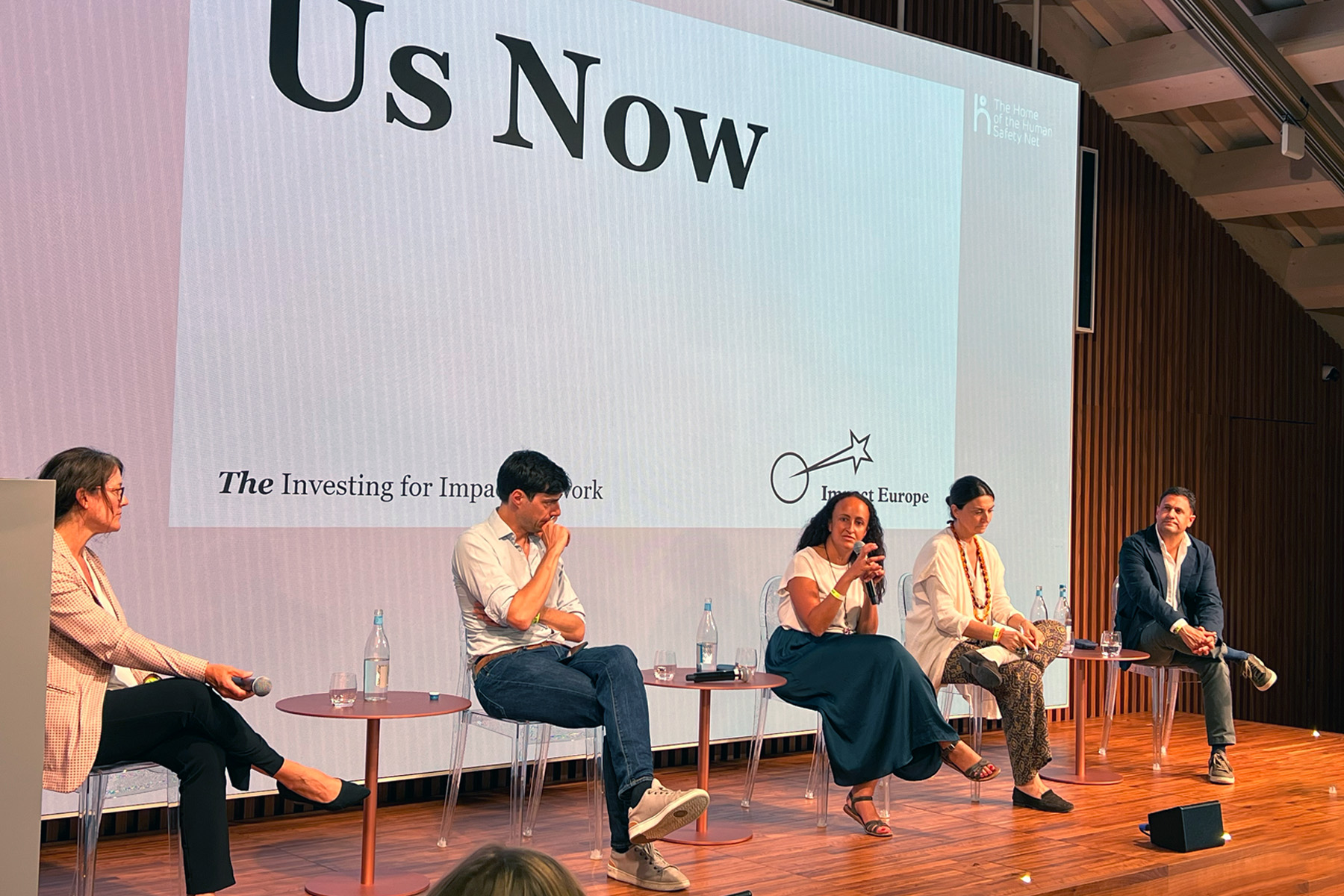Not Just a Transition
Few topics command as much attention from the impact space as the just transition. Impact Leaders in Venice expanded on the discussion ongoing in our previous meetings, reaching beyond mere talking and towards formulating a plan of action.

Whenever we talk about the just transition, it is tempting to get led astray by the apparent simplicity of the mission at hand – to ensure a green, sustainable transition, in which no community or person is left behind. Participants to our Tables of Trust over the course of 2024 will know that the real challenge is a lot more complex.
It is also quite acute. Leslie Johnston, Chair of Impact Europe, kickstarted the discussions with a stark reminder of what the future looks like without this transition. She didn’t have to look far to find examples. Venice, with its many canals and access to the sea, is predicted to be underwater by the year 2150. It’s a thesis that finds confluence in many other data sets, including the temperature data recorded in Italy throughout the years, which show a clear and steep rise in recent decades.
Adding to the complexity is the reality that no crisis exists in isolation. Johnston described a ‘polycrisis’, in which the whole is even more overwhelming than the sum of its (already quite grave) parts. This idea is made evident when considering the social goals put forward by governments and international organisations. Achieving social progress often comes at the expense of the planet, while countries that put limited strain on the planet struggle when it comes to inclusivity, life expectancy and other quality-of-life measurements.
If we have learned anything over the course of the years, though, it is that in crisis hides opportunity. Johnston described how Laudes has been looking to kindle this fire by embedding ‘justness’ in the financial sector. Ultimately, though, she threw the question back to the leaders in the audience: what do you think needs to happen to accelerate a just transition?
‘Firestarters’ Seb Elsworth (Access), Facundo Etchebehere (Danone), Maha Keramane (BNP Paribas) and Teresa Guardans (Oryx Capital) provided additional food for thought and perspectives in the subsequent panel, raising topics like community ownership, being intentional towards the communities you serve and being brave and innovative in how to approach this challenge.
Let’s talk action
In smaller groups, the Impact Leaders convened to discuss a range of themes directly related to the just transition: how to coax policy that helps realise it, how to reframe the narrative around the just transition, how to take effective collective action and how culture can contribute to creating a better future. After all, facing a polycrisis calls for impact people of all domains to band together.
The result was a series of recommendations, plans and proposals that will be followed up on in the months to come. A proposal for a unifying narrative was made, that focuses on creating a future where our children and grandchildren can prosper alongside the planet. It’s a view that is rooted in values, and can be used to inspire people beyond the typical impact spheres to engender political, real-world change. Furthermore, seeds of collective action were planted. Several participants indicated the desire to partake in an initiative to bring together more knowledge and to unite existing advocacy efforts – an avenue that Impact Europe will facilitate and expand upon during Impact Week in Bilbao.
Story time
Some of the most remarkable guests at Impact Leaders were the filmmakers, impact producers and other cultural impact guests, a fair few of whom combined Impact Leaders with the Venice Film Festival. Our host, The Human Safety Net, integrated the second edition of their cross-over event Lights! Camera! Impact! into our Impact Leaders conference, infusing the discussion about just transition with some filmmaking flair.
Their presence offered concrete examples of how cultural products, and film in particular, have a unique potential of targeting the heart, as opposed to other pathways that tend to focus on the rational or the gut feeling. Award-winning Bosnian filmmaker Jasmila Žbanić came to discuss her work on Quo Vadis, Aida? as well as her other impactful work with production house Deblokada, while director Yasemin Şamdereli presented Samia, a movie about a Sudanese girl that went to the Olympics, later to perish while crossing to Europe.
It all contributed to what is and shall remain an ongoing story of justly transitioning to a more sustainable, fairer world. It is clear from our discussions in Venice that this is not a transition like most others. It will remain central to our mission in the years to come, and as such, it can be a heated topic – one we would like progress from, even, to focus on different things.
But as we all know, making change happen is an arduous process that requires lengthy efforts. It is a process of changing the collective minds of people. And as Stephen Gyllenhaal, director of the documentary UnCharitable, put it on stage: "Changing minds is a bitch. But changing minds is the way to change the future. And there is no better way to do that then by storytelling.”
The just transition will be our story for a while – let’s continue to tell it, and to tell it well.
